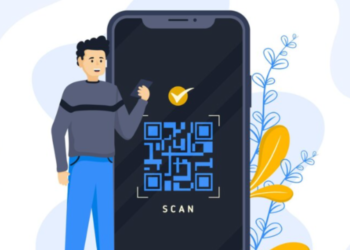Paying off debt is often talked about, but not enough people actually do it. Many people have been carrying years of debt burden and want to know how to repay the debt quickly. If you’re in debt, you may feel like you’ve let years of your life pass you by. But if you’re willing to make some changes, you can still get your finances back on track. This blog will walk you through what to do if you’ve been carrying a debt burden for years and take the first steps towards ridding your life of that burden.
Paying off a debt burden can be a challenging and time-consuming process, but it is possible with patience and a plan. Here are a few steps you can take to pay off your debt:
1. Make a list of all your debts
The first step to paying off your debt burden is to get a clear picture of exactly what you owe. Make a list of all your debts, including the creditor, interest rate, and minimum monthly payment. This will help you prioritize which debts to pay off first and give you a sense of the overall scope of your debt burden.
2. Prioritize your debts
Once you have a list of your debts, prioritize them by interest rate, with the highest rate first. This is known as the “debt avalanche” method, and it can save you money in the long run because you’ll be paying off your highest-interest debts first.
Alternatively, you can prioritize your debts by balance, with the smallest balance first. This is known as the “debt snowball” method, and it can be a good option if you need a quick win to keep you motivated.
3. Consolidate your debts
If you have multiple debts with different interest rates, consolidating them into one loan with a lower interest rate can make it easier to pay off your debts. You can consolidate your debts through a balance transfer credit card, a personal loan, or a home equity loan. Just be sure to read the fine print and understand any fees associated with consolidation before you move forward.
4. Pay more than the minimum payment
Paying just the minimum payment on your debts each month will keep you in debt for a long time and cost you more in the end due to interest. If you can afford it, try to pay more than the minimum payment each month, especially on your highest-interest debts. This will help you pay off your debts faster and save money on interest in the long run.
5. Cut expenses
Reducing your expenses can free up more money to put toward paying off your debts. Look for areas where you can cut back, such as dining out, entertainment, and subscriptions. You can also negotiate your bills, such as your cable and cell phone plans, to lower your monthly expenses.
6. Consider balance transfer credit cards or personal loans
If you have high-interest credit card debt, a balance transfer credit card can help you pay it off faster. These cards offer a 0% intro APR on balance transfers for a certain period of time, which can give you a break on interest while you work to pay off your debt. Just be sure to read the fine print and understand any fees associated with balance transfer credit cards before you apply.
Alternatively, you can consider a personal loan to consolidate your debts. Personal loans often have lower interest rates than credit cards, which can help you pay off your debts faster.
7. Work with a financial advisor or credit counsellor
If you’re having trouble paying off your debts or creating a plan to do so, consider working with a financial advisor or credit counsellor. They can help you create a budget, negotiate with creditors, and develop a plan to pay off your debts.
Remember, paying off a debt burden is a process, and it may take time. Be patient and stay committed to your plan, and you will eventually become debt-free.








